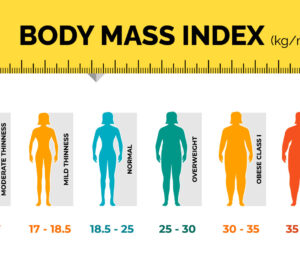It's been said that the scale doesn't lie. This is certainly true if you're simply trying to see how much you weigh at any given moment. But a scale can be misleading if you're monitoring your weight loss over a long period of time, the way you would after weight-loss surgery.
Your weight fluctuates throughout the day, depending on your body's hydration level, when you've last eaten and even when you're stepping on the scale.
What you really want to know is this: Are you making progress toward your long-term weight-loss goals?
The answer to that question may not be found by stepping on a scale once or twice a day. A better way to help you track your progress is to use a tape measure, a camera your wardrobe or even track what you couldn't do before your weight loss surgery but can do comfortably now!
Measuring yourself
After weight loss surgery, your body is going to change a lot. For example, after gastric sleeve surgery, your thighs, waistline and biceps will eventually start to get smaller—because you'll be losing weight.
Taking bi-monthly measurements of these areas will help you track your progress. You can also measure the thickness of your skin folds. If you notice that you're legs, stomach and arms aren't getting smaller (or if they start getting bigger), you know that you need to make some adjustments to your diet and exercise routine.
Taking pictures
Once a week, snap a picture of yourself in your swimsuit. After a few weeks, line the pictures up next to one another and see for yourself how much change is taking place. If you see periods of time when there's not a lot of change, take a look back at your diet and exercise habits over those time periods and make adjustments moving forward.
Paying attention to your wardrobe
Once you've reached your weight-loss goal after gastric sleeve surgery or after another weight loss surgery, pay close attention to how your new wardrobe fits. If things start getting too snug, it might be time to change your diet and exercise program again.
I think I can I think I can
Another good way to track progress is to think back to your life pre-weight loss surgery and all that activities you were unable to do, like walking around the block or standing at a soccer game for an extended period of time. Simple things that wouldn't seem like much to some people are monumental steps for you! Tying your shoes, or being able to bend over and pick up your grandbaby is what really matters.





